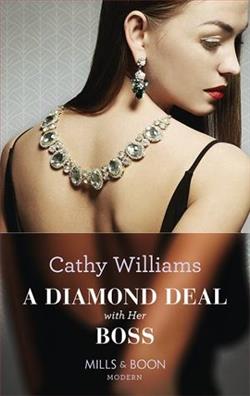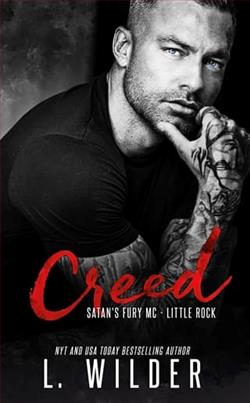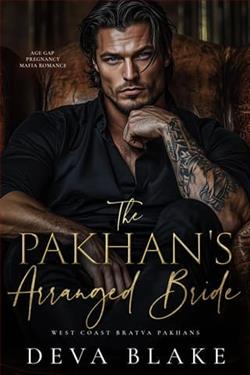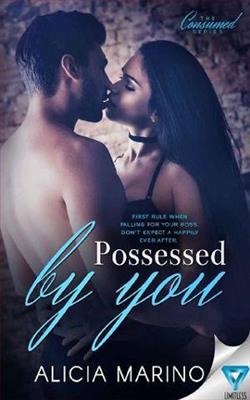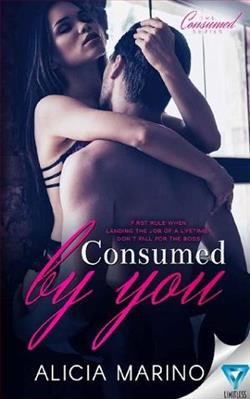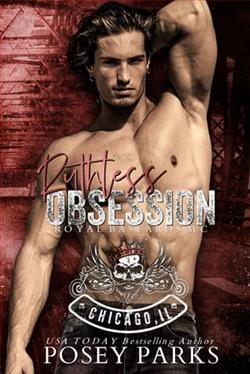Page 24 of Ms Perfectly Fine
“Did you go to Wickford?” he asked, and she shook her head.
“No, I went to a community college. You?”
“I studied in Canada. I couldn’t wait to get away from home,” he said, looking into his coffee as though he didn’t want to go into more detail.
“Must have been hard to be away from your family,” she commented, wondering if he was close to his parents. Autumn liked to think she was close to hers, even if they didn’t always see eye to eye.
“My mum got remarried, and I figured leaving would give them some space,” he said.
“You didn’t like the guy?”
“No, he’s great. My mum is happy, and that’s all I care about.” The way he said it and the way the corners of his eyes scrunched gave Autumn the impression his mum might have had a hard life. “What did you study?” he asked, taking a sip of his coffee.
“Library and information science.”
“I would have thought you’d study music.”
“No. I worked with my mum in the library on the weekends, so I figured it was a safe bet. It only lasted about six weeks—wasn’t for me,” she admitted. “I love to read, but I never inherited Mum’s obsession with books. Instead, it was Dad’s love for music that settled in my bones. He was the one who took me to my first lesson.”
“Then how did you end up back in the city, playing in an orchestra?” he asked, sitting across the counter from her.
Autumn studied her hands, not wanting to tell the whole sad story. “My old conductor found out I was playing for a small theatre. He convinced me to come back and work for him, and here I am.”
“How long have you been playing?”
“Since I was three. My dad had a piano. He loved playing old songs, and still does, I think. It was something we did together.”
Silence drifted between them. She wondered if she had said too much, but when she looked up from the table, he seemed lost in thought.
“I’m jealous they supported your passion. My own father would sell his organs to get me to take over the family business,” Elijah said quietly.
Autumn pressed her lips together sympathetically. Even though her parents didn’t understand her reason for going back to the stage, they didn’t interfere either.
“They did before. Not so much now, but they let me be. Game design wasn’t on the cards?”
“Definitely not,” he said, his eyes going wide.
“What was?” she asked, glad it was her turn to ask the questions.
“Finance, investments. Managing other people’s money, mostly,” he said.
“Wasn’t for you?”
He grunted. “No, never.”
“What got you into games?” she asked, microwaving one of his meals. She needed to silence her grumbling stomach, and the spaghetti Bolognese did look good. It was also dairy-free—he must need to avoid it.
He watched as she twirled her fork in the spaghetti. She waited for him to say something, but it wasn’t like he could argue about her eating his food after he’d eaten hers.
“When I was in boarding school,” he told her, “most of the other kids went home for the weekends. I didn’t, and gaming became my home. I loved the concepts and stories behind them, and I was good with computers.”
Hearing the passion in his voice, Autumn could tell he wanted his company to work as much as she wanted to return to the stage. Even if she didn’t like how he had handled their current situation, she admired how he’d gone after what he wanted.
“Piano was the same for me, minus the boarding school. It was the one place I could escape to. It came naturally, and it was something I could do with my dad,” she said.
“I envy you. I don’t think I’ve ever had a personal conversation with my father that didn’t end in an argument or a debate.”
She smiled. She understood the feeling more than he knew. “Why did you decide to go out on your own? The article I read said you were on track to take over Nirosoft.”








